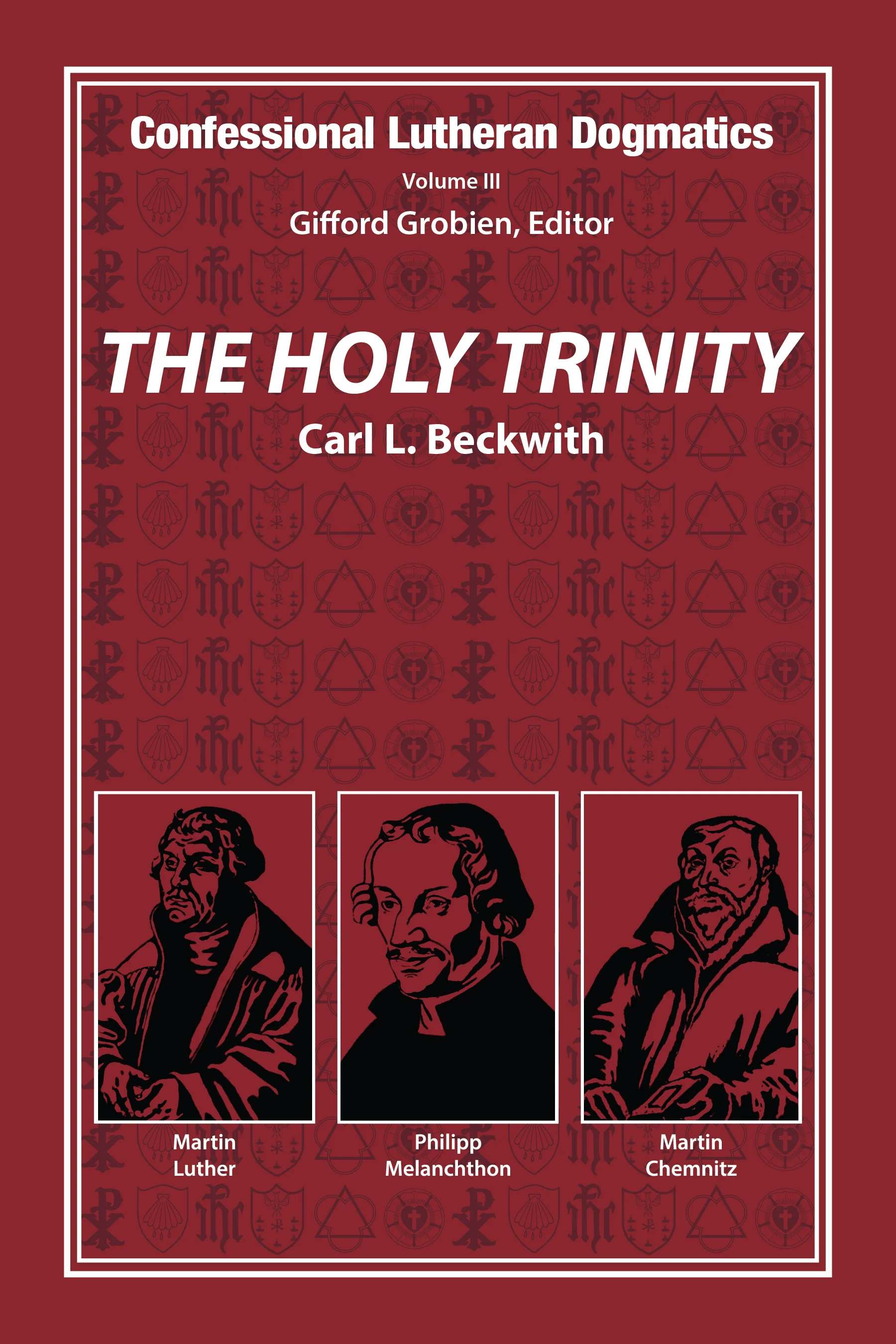Confessional Lutheran Dogmatics: The Holy Trinity (PDF)
Confessional Lutheran Dogmatics: The Holy Trinity (PDF)
PLEASE NOTE: This is the PDF/digital version of the book.
By Carl Beckwith
Physical copies of the book can be purchased here:
You can purchase the Kindle version on Amazon.
This dogmatic resource is based upon the outline and thought pattern of the Lutheran Confessions. The series is strictly and consciously confessional in its presentation of doctrine and its assessment and analysis of modern theological trends throughout the Christian church.
From the author:
What would you say if someone asked you to explain the Trinity to them? Would you begin with scripture, one of the creeds, or some clever analogy? Perhaps out of fear of saying the wrong thing you wouldn’t say much at all. Things have not always been this way. The Church Fathers and our Lutheran reformers often preached and wrote about the Trinity. Fourth-century theologian Gregory of Nyssa writes: “[W]e believe as we are baptized—for it is fitting that our confession be of one voice with our faith—and we give glory as we believe, for it is not natural that worship make war against faith, but as we believe, so also we give glory. Now since our faith is in Father and Son and Holy Spirit, faith, worship, and baptism accord with each other.”[1] Martin Luther spoke in a similar way. Luther wrote that in baptism “we hear the voice of the Trinity” and there understand that “the whole Trinity works salvation.”[2] In the Small Catechism, Luther encourages us to begin and end each day by making the sign of the cross in the name of the Father, Son, and Holy Spirit. For the Fathers and the reformers baptism, faith, and worship found meaning only in the confession of the Triune God of scripture.
Although Christians today pray the Nicene or Athanasian Creed and sing the common doxology without much hesitation, they struggle to explain what the Bible teaches about the Trinity. There is a reason for this. In the period following the Reformation, many questioned the historical truth of the Bible and dismissed the biblical exegesis of the Fathers and reformers. When this scriptural understanding of the Trinity was set aside, all that remained were the creeds and the ingenious explanations of human reason. We live in a peculiar time. We embrace the doctrine of the Trinity but no longer know the history of exegesis that guarded and confessed the scriptural identity of the Father, Son, and Holy Spirit.
In my volume on the Trinity, I show how we rightly reflect upon and talk about the Trinity by placing Christ and the Gospel at the center. Next I demonstrate at length the scriptural identity of the Trinity as made known to us throughout the Old and New Testament. Finally, I explain the sound pattern of words used by the Fathers and Reformers to protect and proclaim the scriptural identity of the Trinity. We are the heirs and guardians of a rich tradition. By reclaiming our inheritance, we will confidently confess our Trinitarian faith by boldly proclaiming the pure Gospel of Jesus Christ. As the Fathers and reformers understood, there is no other way to know, worship, and glorify the Holy Trinity.
Carl Beckwith is professor of church history and doctrine at Beeson Divinity School in Birmingham, Alabama. He is the author of Hilary of Poitiers on the Trinity (Oxford University), translator of Johann Gerhard’s Handbook of Consolations (Wipf & Stock), and editor of Ezekiel and Daniel in the Reformation Commentary on Scripture series (IVP). He also serves as the associate pastor of Hope Lutheran Church in Birmingham.

